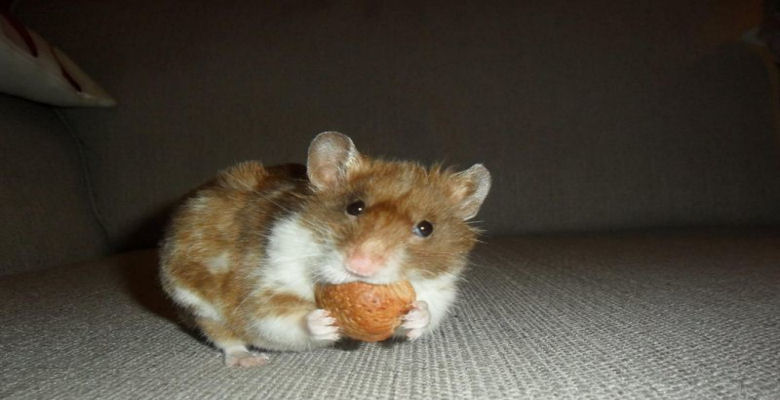Improving animal welfare

Hamsters are the ubiquitous childhood pet: cute, cuddly, ready to sink their teeth deep into your finger … But how can you tell if your hamster is happy? And what can you do to improve their wellbeing?
Scientists at Liverpool John Moores University have published a study in the journal Royal Society Open Science revealing that hamsters in cages enriched with hammocks, extra bedding, ledges and chews show shifts in their cognition similar to those seen in people when happy.
Enriched hamsters made more optimistic judgements about ambiguous information than they did when the enrichment was removed. This is the first study to demonstrate that positive shifts in emotion can be objectively measured in hamsters.
The scientists trained Syrian hamsters to expect sugar water in a drinker placed at one location in a test arena and to expect bitter quinine water at another location. Hamsters were quick to approach the sugar water location, but stopped approaching the quinine location. The scientists then gave half of the hamsters a range of enrichment devices including hammocks, extra bedding, ledges and chews to increase opportunities to express natural behaviours and improve their mood, and measured how often hamsters approached ‘ambiguous’ drinkers placed in locations in between the sugar and quinine locations. The enriched hamsters approached the ambiguous drinkers more often than did the unenriched hamsters, suggesting they were more optimistic that the drinkers might contain sugar water.
Dr Nicola Koyama, LJMU Senior Lecturer in Ethology:
Dr Emily Bethell, LJMU Senior Lecturer in Primate Behaviour:
"This study shows that hamsters housed in enriched environments make more optimistic judgements about otherwise ambiguous information. The important note for pet owners is that ensuring pets have adequate opportunities to express natural behaviours in captivity improves their mood and is essential for their welfare."
"Judgement bias studies let us examine the effect of emotions on cognitive processes and are important measures for improving animal welfare. Hamsters are often a child’s first pet and we’ve shown that what goes into a cage (ledges, chews, hammocks and material to dig in) has a positive impact on a hamster’s emotional state and thus, their well-being."
Download the paper Happy hamsters? Enrichment induces positive judgement bias for mildly (but not truly) ambiguous cues to reward and punishment in Mesocricetus
Download the paper Happy hamsters? Enrichment induces positive judgement bias for mildly (but not truly) ambiguous cues to reward and punishment in Mesocricetus
The research received local, national and international media coverage including, SCIENCE magazine, i newspaper, the Liverpool Echo, The Times, BBC radio stations across the country, The Daily Mail, Yahoo News , The Metro , The Irish Independent , PHYS.org , Discovery News , USA Today , and the Berliner Zeitung


